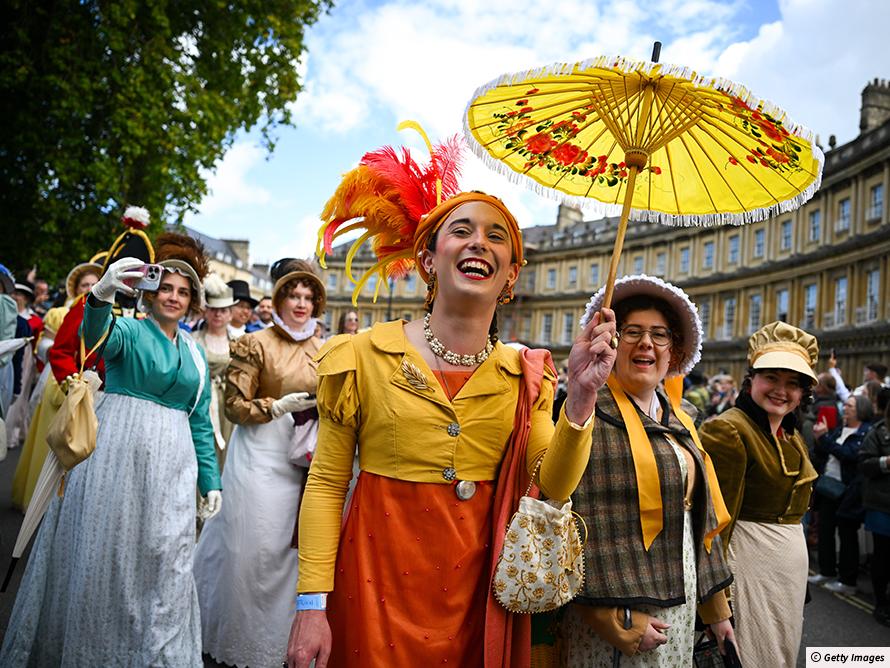Is Jane Austen a satirist? This week, hundreds flocked to Bath’s Royal Crescent to immerse themselves in the vivid world of Jane Austen’s novels on the 250th anniversary of her birth.
Bonnet bonanza for 250 years of Austen
 Austentatious: People of all ages and genders gather together in Bath every year to celebrate the enduring appeal of Jane Austen's books, works of fiction with themes that still resonate with lives today.
Austentatious: People of all ages and genders gather together in Bath every year to celebrate the enduring appeal of Jane Austen's books, works of fiction with themes that still resonate with lives today. Comprehension quiz
-
The word ‘wryly’ most closely means:
A: Humorous in a dry, understated way
B: Seriously and with great thought
C: In a very upset or angry way
D: With a lot of excitement and joy
-
Which word is the closest synonym for “celebrity” as used in the article?
A: Friend
B: Fan
C: Fame
D: Family
-
Add the correct punctuation to this sentence:
her most famous work which told the love story of plucky and witty elizabeth bennet
-
According to the article, what are two qualities for which Jane Austen is most renowned?
-
According to the article, why might some people believe that the enduring appeal of Austen’s novels is her social satire?
A: Because her writing is focused on romance and happy endings.
B: Because the issues she wrote about, like class and gender inequality, are still relevant today.
C: Because her books are often made into movies and TV shows.
D: Because she wrote about a simpler time in history.
-
According to the article, what are two things that fans did at the Jane Austen festival in Bath to celebrate her legacy?
Answers
Tap to reveal
Glossary
Netherfield - Netherfield Park is a fictional country estate in Jane Austen's Pride and Prejudice, where a ball is held.
Quadrille - A traditional square dance performed typically by four couples.
Mr Darcy - One of the two central characters in Jane Austen's 1813 novel 'Pride and Prejudice'.
Regency - A situation in which someone takes the place of a monarch who is too young or no longer able to rule.
Posthumously - After death. It derives from two Latin words meaning after and ground.
Satire - A genre of art which ridicules the shortcomings and hypocrisies of society.
